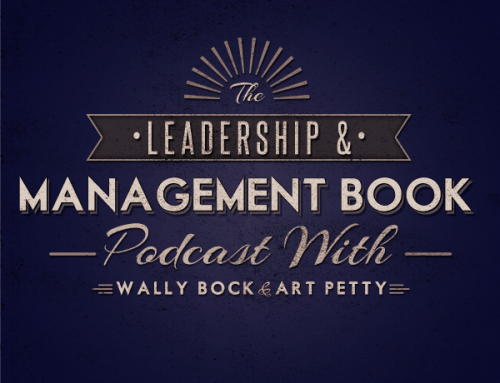(Author's note: this post is filled with hasty generalizations and probably a few miscarriages of justice and judgment. If you are in academia, read it at your own peril.)
I suspect that I might raise the ire of a few publishers and professors with this one, but oh well, life is short and some things just need to be said. Of the many things that I am involved in, one of the newest and most enjoyable is teaching at the graduate and undergraduate levels. This has been a long-time goal of mine driven in large part by a number of great experiences and great instructors earlier in life. You know the type of instructor that I'm talking about. The ones we all remember are the educators that both created and satisfied intellectual curiosity, entertained and ultimately left an impression on us.
And while I'm loving the experience, I can't help but observe that the textbooks are some of the most mind-numbing, coma-inducing products ever to emerge from Gutenberg's great creation. In particular, the Management text in my Fundamentals of Management course this Spring is almost certain to drive the most interested of business majors to consider something more exciting like accounting or neurophysiology. What a shame to take a noble and exciting and complicated topic like management and wrap a bunch of dead theories in-between some interesting case studies and let that suffice for something that is supposed to teach the fundamentals of management. (Author's note: I didn't pick the text…it was pre-picked. I won't make that mistake again.)
I confess to being a bit over the top about business education. I've spent a decade attending programs at Kellogg and I've never left a day long, week-long or year-long program without being filled with ideas, excitement and new found energy for the challenges ahead. (And now that I am teaching at several institutions, I aspire to have that impact on the participants in my classes.) I must have missed the memo that said that it is OK to inspire executives, but for undergraduates, we've got to test them by subjecting them to content that is almost certainly non-essential for success and most definitely, boring.
OK, in fairness to this unnamed textbook, words like strategy, management, market forces, Porter's Forces, leadership, innovation, information technology and many others that you would recognize as belonging to the field of management do appear. However, it's downhill from there.
I suppose the best cure is for me to write myself and I may. I already co-wrote a leadership book that I now look at in a new light after struggling through the text's painful treatment of one of my favorite topics. I'll stop my ranting now and offer a few suggestions for anyone considering writing about or teaching management to the future managers of the World.
My suggestions for the ultimate management textbook (versus the one I had to teach from):
- Please skip the history of management theory development or at least condense it down to an interesting few pages. This is a great topic, and likely very important at a more advanced level, but not critical as an initial exposure to management.
- I do want to provide students with some context for the evolution of business and business models and how organizations and leaders have changed over time based on advances in technology and changes in society. Good stuff and important context.
- Leadership…keep it practical and make certain that we do much more to highlight that leadership is a profession and a very complex, challenging and rewarding one at that. You can skip the nonsensical debate and endless pages about the mind of a manager versus the mind of a leader. They are one and the same person…dealing with different topics from tactics and operations to strategy and motivation.
- Speaking of strategy, please portray this powerful tool of leadership and engine for value creation as a dynamic process that involves an entire organization versus something that consists of SWOT and Porter's Forces analyses. And don't forget execution.
- The section on HR reads like something developed by the Politically Correct Committee. Please. HR's role as a critical enabler of strategy through talent and systems and tools is much more exciting than whole sections on diversity and harassment.
- Hmmm, Information Technology as a subset of some other chapter is not going to cut it. Again, we are talking about a critical enabler of strategy and a complex and constantly changing arena.
And so on…
The Bottom-Line for Now:
I'll stop here with a comment that now that I've thought about it, I don't know why a text is needed at all. Staff the program with experienced business professionals and infuse the curriculum with readings and concepts from Welch, Charan, Maxwell, Day, Drucker, Collins, Churchill, Lincoln and Franklin and most issues of Harvard Business Review and call it The Joy of Management. Hmmm, it just might work. Remember, you heard it here first.






Great post, Art. In fairness, it’s not just management textbooks that are often boring. Part of the problem is that we try to teach management as if it were a science where if you do X, then Y will happen.
But management and leadership aren’t sciences. Like many other fields of practice, they’re arts that use science. And they are subject to two truths.
You can learn about management in class or from a book, but you learn to manage out there in the world. You try things. Then you critique. You adjust. You do things differently the next time.
And you develop your collection of stories. Some of those stories are learned from experience. Some are learned around the “campfire” of discussion. We sometimes call them “war stories.” And some can be learned from books.
If I were designing a leadership/management course, I’d structure them around stories from business history. That’s the sort of management book I’d want to write, full of stories you could discuss in class.
Until mine’s ready, there are books by Alfred Chandler, John Steele Gordon, Nancy Koehn and others that will do fine. Business leaders like Jim Kilts, Lou Gerstner and Jack Welch have written their stories.
Stories are the way that human beings have made sense of complex issues since we began to speak. They’re also the best teacher we have, short of experience.
Great post Art, great comment Wally! In my experience, both in programs I have participated in and conducted, some sort of blended design incorporating elements of the science and art of management have created the greatest value.
I think it’s unrealistic to expect one book to encompass everything, and have found the collection of readings (a chapter here, another there, some HBR articles, etc.). Tie this with some strong experiential design, where the participants have a real and tough project in which they have to collaborate and where they have to go find resources (academic or otherwise) to help support them and I think you start building a stronger learning environment and a closer simulation of how we have to work in the real world!
As a side note on management tome’s, at the risk of goring a lot of my professional colleagues, the popular management press is almost as bad. There are too many fluff pieces, devoid of original ideas or approaches, and primarily focused on helping improve speaking/consulting fees. Would be great to find some balance!
Wally and Dave, thanks for the wisdom in your comments! I suspect you both fall into that category of “teachers” that leave a strong impression. -Art